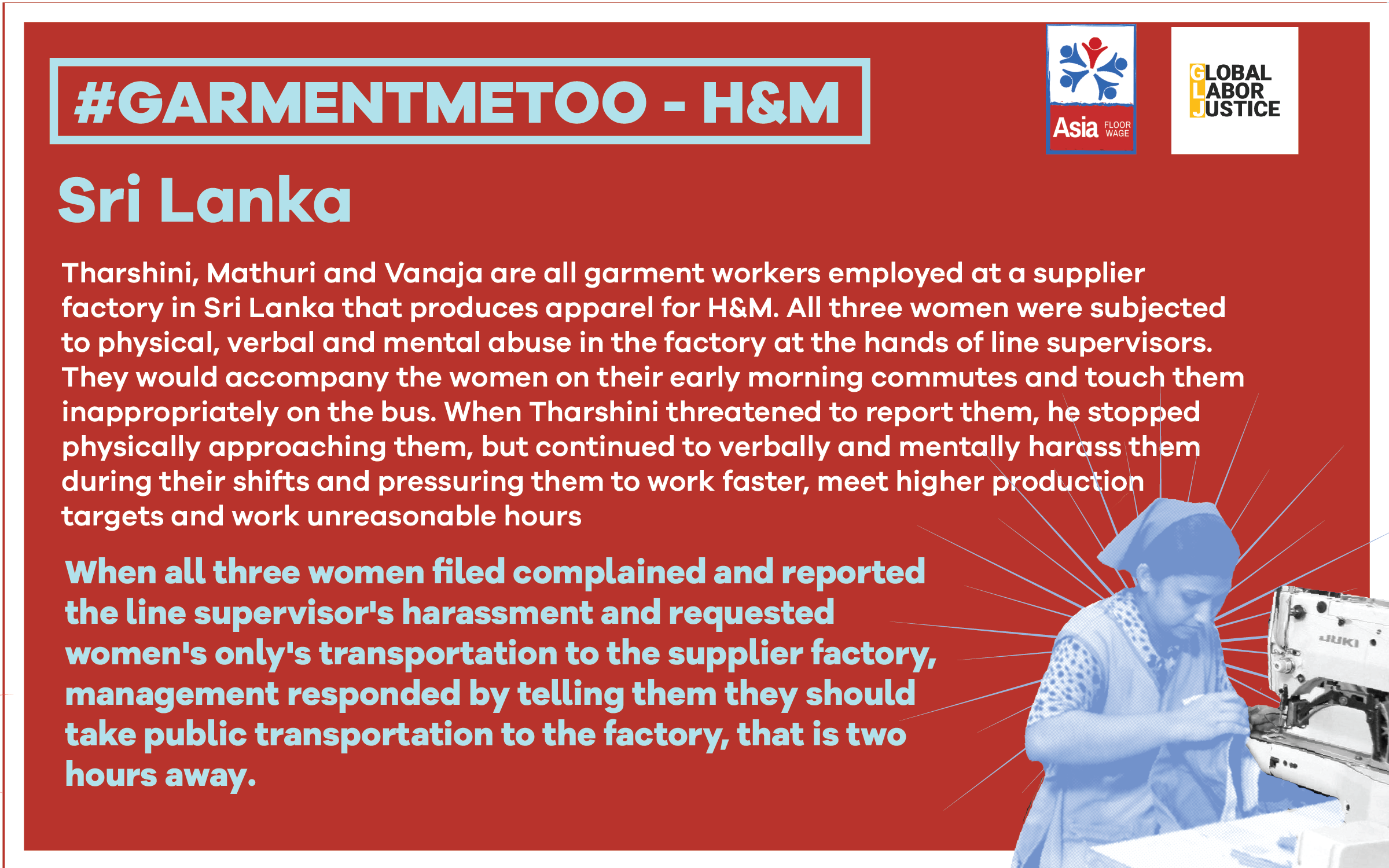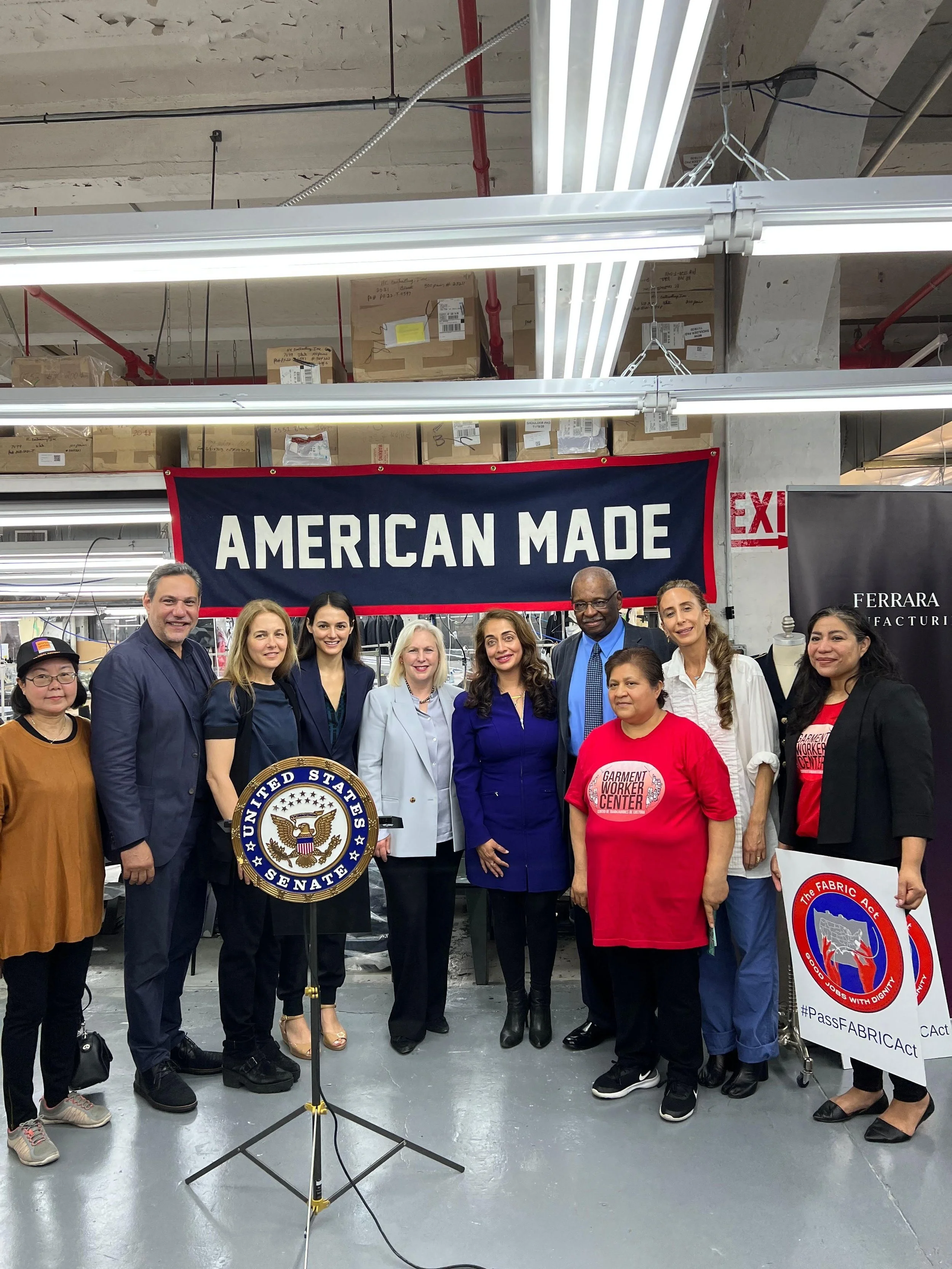Labor Justice
Introduction to Labor Justice
"The US$2.4 trillion garment and footwear industry, employs millions of workers worldwide. Clothes and shoes produced in countries in Asia, Latin America, Eastern Europe or other parts find their way into the clothes racks in the US, Canada, Europe, Japan, and Australia. Labor abuses in factories that produce these clothes and shoes are rife. In countries around the world, factory owners and managers often fire pregnant workers or deny maternity leave; retaliate against workers who join or form unions; force workers to do overtime work or risk losing their job; and turn a blind eye when male managers or workers sexually harass female workers" (Human Rights' Watch).
How to change the garment industry? | Bangladesh Accord
For decades garment companies have made empty promises to create working conditions for the workers that make their clothes. But nevertheless in 2013 over 1,100 workers died in the Rana Plaza factory collapse and labour rights violations continue throughout the supply chain. The only way to create real change is through binding agreements and regulations, as shown by the successful work by the Accord on Fire and Building Safety after the collapse.
Garment Me Too Campaign
This campaign is led by women trade union leaders in order to win concrete solutions and contribute to new international labor standards and ultimately create power building roles for supplier unions, allied unions, women’s organizations, human rights organizations, and consumers in brand supplier producing and retail countries.

The Fabric Act
The Fashioning Accountability and Building Real Institutional Change (FABRIC Act / S.4213), introduced in the Senate by Senator Kirsten Gillibrand (NY) and in the House of Representatives by Carolyn Maloney (NY), would protect nearly 100,000 American garment workers and revitalize the garment industry in the United States by improving working conditions, reforming the piece-rate pay scale and investing in domestic apparel production.
Sign the petition here.
What She Makes
The women who make our clothes do not make enough to live on – keeping them in poverty. Despite long hours away from their families, working full time plus many hours of overtime, big clothing brands do not pay garment workers enough money to cover the basics of life – food and decent shelter.
Oxfam’s What She Makes campaign demands big clothing brands pay the women who make our clothes a living wage. Together, with your voice demanding action, and Oxfam’s direct engagement with brands, we urge clothing companies to take the crucial next step in creating a fairer fashion industry.
More campaigns from Clean Clothes Campaign here.
Articles
Books
-
The Fight for Ethical Fashion: The Origins and Interactions of the Clean Clothes Campaign by "From consumer boycotts and buycotts to social movement campaigns, examples of individual and collective actors forging political struggles on markets are manifold. The clothing market has been a privileged site for such contention, with global clothing brands and retailers being targets of consumer mobilization for the past 20 years. Labels and product lines now attest for the ethical quality of clothes, which has, in turn, given rise to ethical fashion. The Fight for Ethical Fashion unveils the actors and processes that have driven this market transformation through a detailed study of the Europe-wide coordinated campaign on workers' rights in the global textile industry - the Clean Clothes Campaign. Drawing on insights from qualitative fieldwork using a wide range of empirical sources, Philip Balsiger traces the emergence of this campaign back to the rise of 'consumer campaigns' and shows how tactics were adapted to market contexts in order to have retailers adopt and monitor codes of conduct. By comparing the interactions between campaigners and their corporate targets in Switzerland and France (two countries with a very different history of consumer mobilization for political issues), this ground-breaking book also reveals how one campaign can provoke contrasting reactions and forms of market change."
Call Number: TT496.E85 B35 2014ISBN: 9781409458050Publication Date: 2014-09-03 -
Workers' Rights and Labor Compliance in Global Supply Chains by This book provides insight into the potential for the market to protect and improve labour standards and working conditions in global apparel supply chains. It examines the possibilities and limitations of market approaches to securing social compliance in global manufacturing industries. It does so by tracing the historic origins of social labelling both in trade union and consumer constituencies, considering industry and consumer perspectives on the benefits and drawbacks of social labelling, comparing efforts to develop and implement labelling initiatives in various countries, and locating social labelling within contemporary debates and controversies about the implications of globalization for workers worldwide. Scholars and students of globalisation, development, corporate social responsibility, human geography, labour and industrial relations, business ethics, consumer behaviour and fashion will find its contents of relevance. CSR practitioners in the clothing and other industries will also find this useful in developing policy with respect to supply chain assurance.
Call Number: E-BookISBN: 9781135012885Publication Date: 2013-11-26
Videos
Fashion and Prison Labor with Teju Adisa-Farrar
Is it a “sustainable” brand if it’s made in prison? Unfortunately this issue is more common than we may think. This class looks at the history of prison labor and colonialism connected to economic domination, the types of garments made in prison and the brands that (have) use(d) prison labor, including some “sustainable” one. What does prison abolition mean for the fashion industry?
The True Cost
This is a story about clothing. It’s about the clothes we wear, the people who make them, and the impact the industry is having on our world. The price of clothing has been decreasing for decades, while the human and environmental costs have grown dramatically. The True Cost is a groundbreaking documentary film that pulls back the curtain on the untold story and asks us to consider, who really pays the price for our clothing?